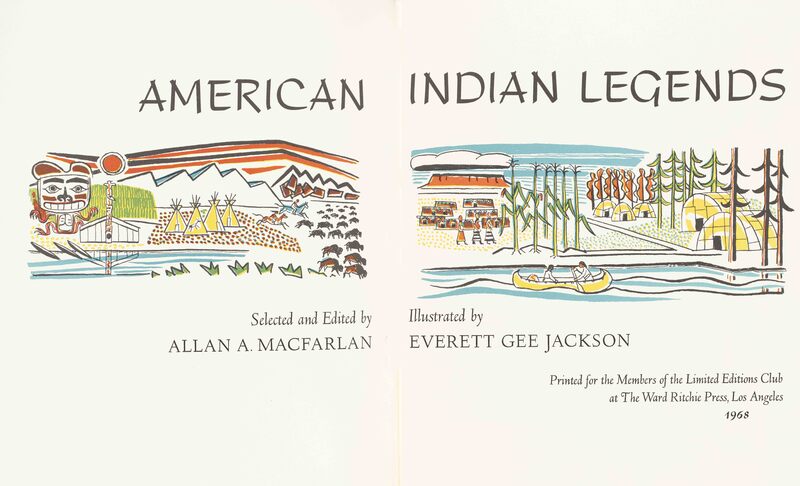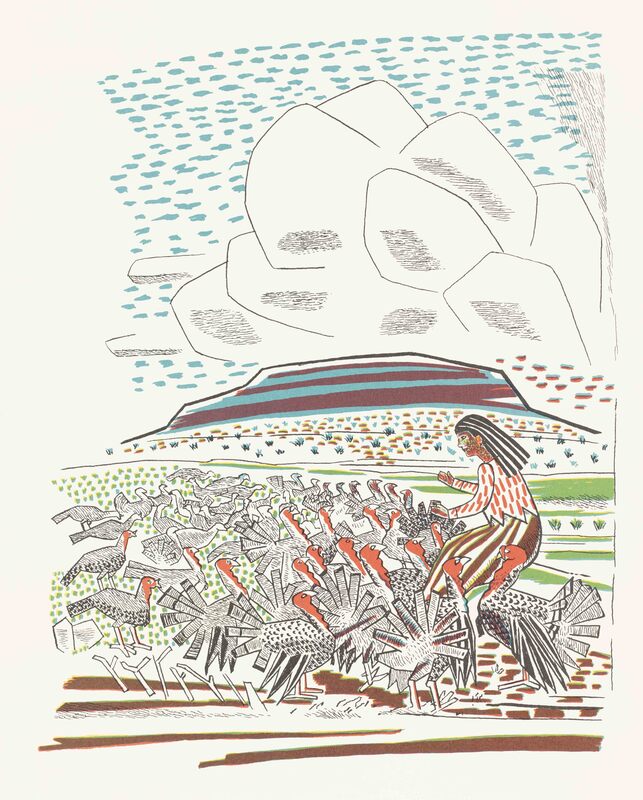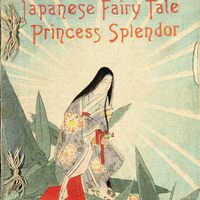Exhibit Contents
- Once Upon a Time
- American Indian Legends
Native American Folklore
For indigenous peoples all over the world, folklore is an important cultural tradition. In American Indian Legends, Allan Macfarlan has compiled dozens of folktales from the writings of Henry R. Schoolcraft, George Bird Grinnell, and Franz Boas. The stories in this volume come from the Central Eskimo, Tsimshian, Thompson, Maidu, Pueblo, Zuni, Blackfoot, Cheyenne, Cherokee, and Iroquois peoples, among others. Though each tribe or nation has its own distinct culture, Native American folktales from different regions often share similarities. Common themes include visiting the sky or supernatural lands, the transformation of humans, contests/challenge games, dreams, and anthropomorphic animals. Many are creation and origin stories that explain tribal beliefs or natural phenomena, while others tell of culture-heroes, monsters, tricksters, and magic.
"The Poor Little Turkey Girl"
Some Native American stories are similar to European fairy tales, including the story featured here. “The Poor Turkey Girl" is a folktale from the Zuni Native American Pueblo peoples of southwest North America. It is a variation of Charles Perrault’s fairy tale “Cinderella.” In the story, a young turkey herder longs to join in the Dance of the Sacred Bird festival with the rest of the village. Having always treated her turkeys with kindness, the birds repay the girl by transforming her so that she can attend the festival.
However, unlike other Cinderella stories, the focus of this tale is not on finding true love but rather on friendship and keeping one’s promises. When the girl fails to return to her turkeys in time, she is transformed back into her rags and discovers that the turkeys have flown beyond the Zuni Mountains, leaving her alone. The story ends with the following lesson for its readers: "After all, the gods dispose of men according as men are fitted; and if the poor be poor in heart and spirit as well as in appearance, how will they be aught but poor to the end of their days?"



